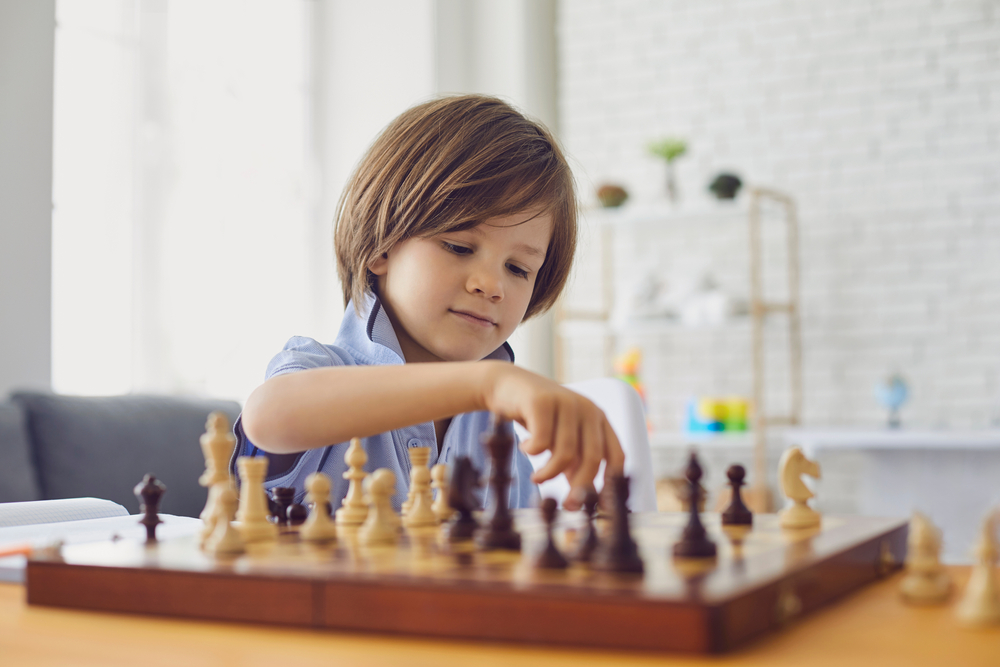Critical thinking skills Normal Worksheets for Ages 5-6
6 filtered results
-
From - To
Enhance your child's cognitive development with our "Critical Thinking Skills Normal Worksheets for Ages 5-6." Through engaging and challenging activities, these worksheets are designed to stimulate young minds and foster essential problem-solving abilities. Each sheet encourages children to analyze, interpret, and conclude, laying a solid foundation for future learning. Perfect for at-home practice or classroom use, our worksheets support academic growth and boost confidence in young learners. Start nurturing critical thinking skills early with Kids Academy’s expertly crafted resources tailored for curious 5-6-year-olds. Discover the joy of learning today!
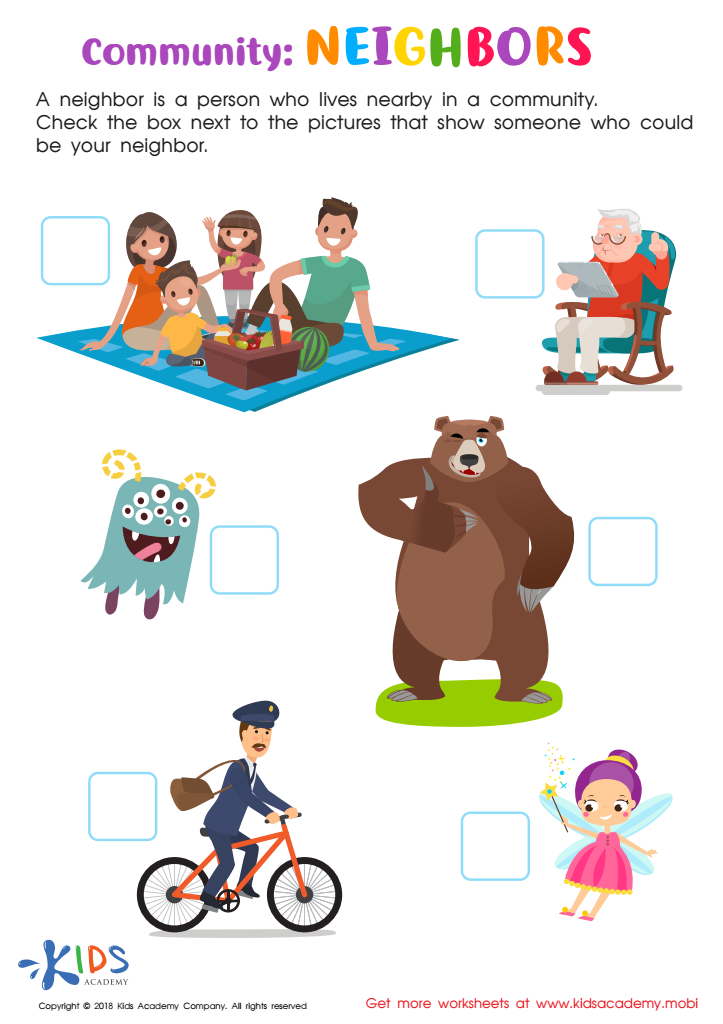

Community: Neighbors Worksheet
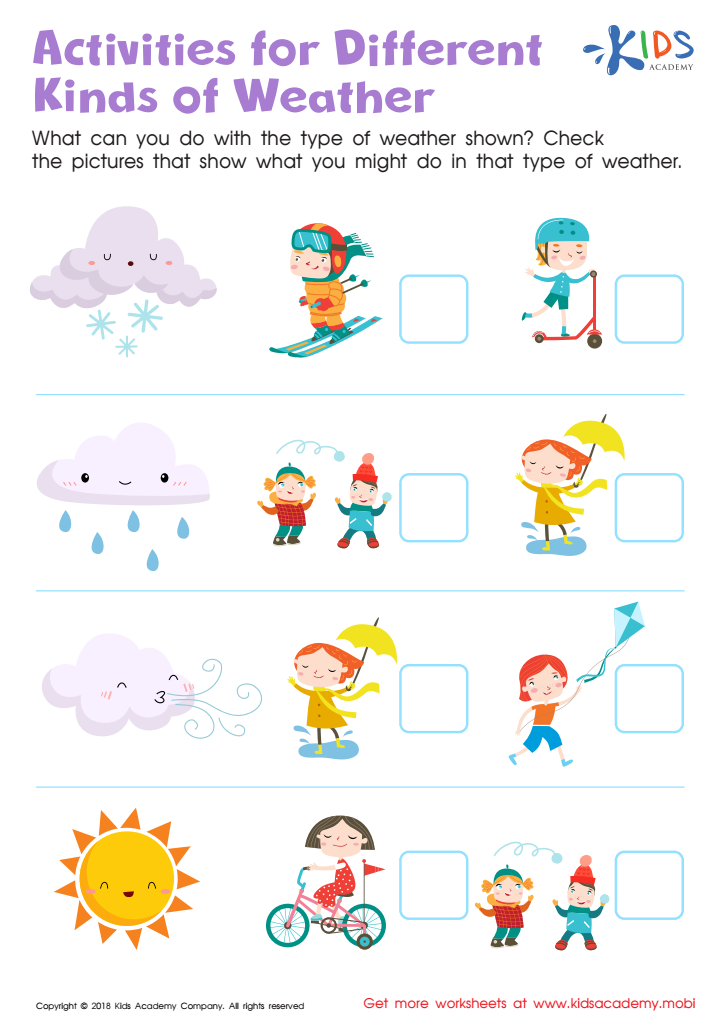

Activities for Different Kinds of Weather Worksheet
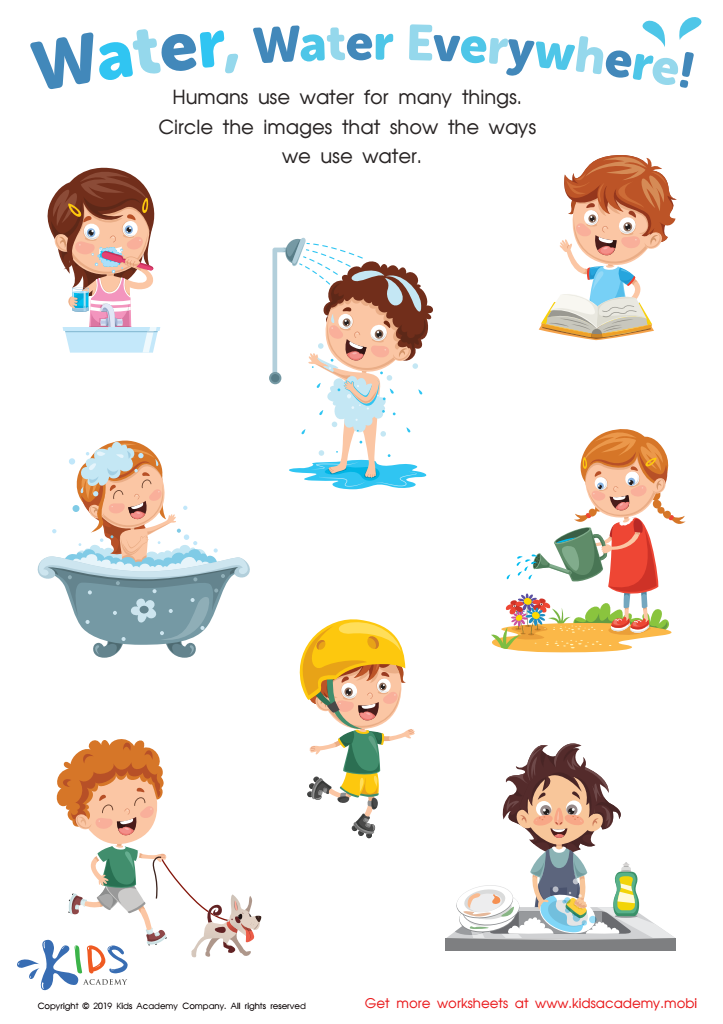

Water, Water Everywhere! Worksheet
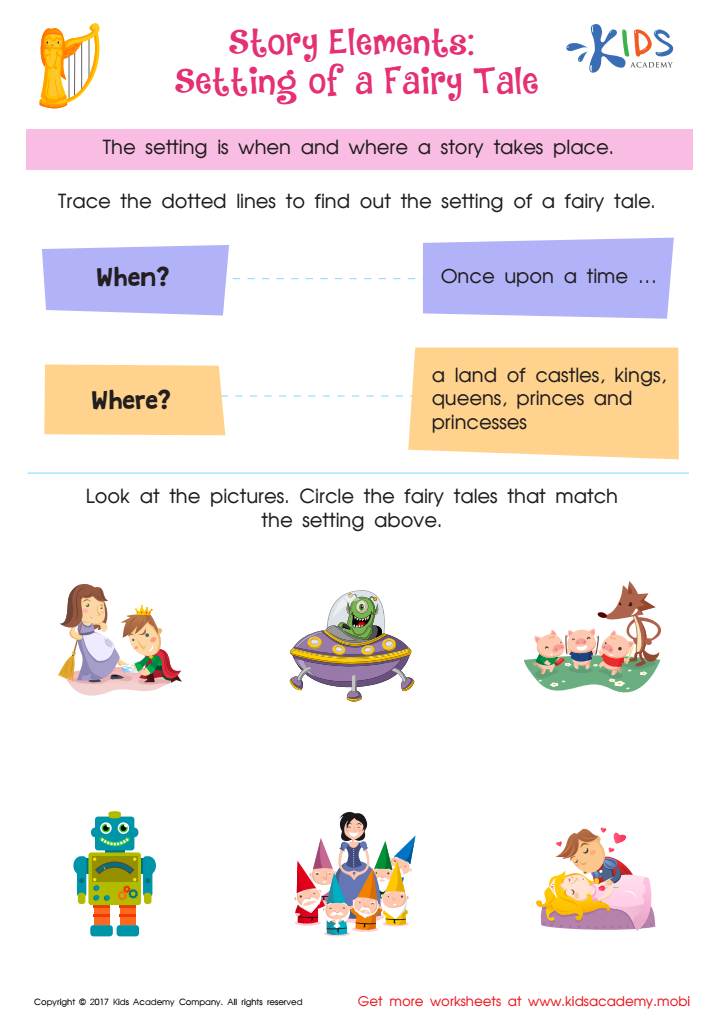

Story Elements: Setting of a Fairy Tale Printable
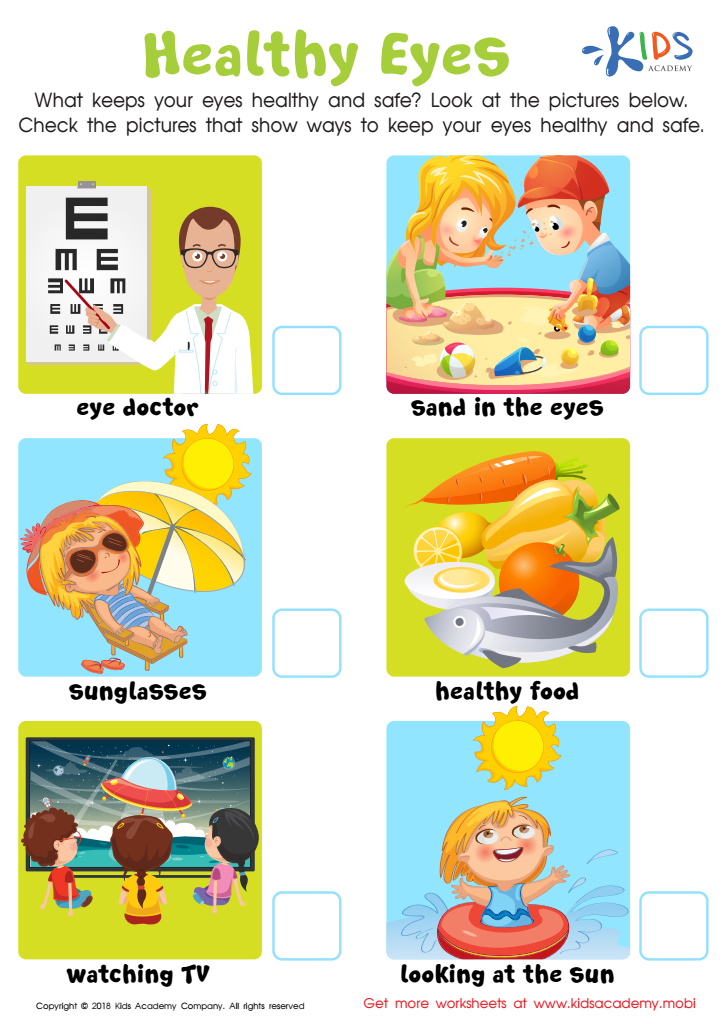

Healthy Eyes Worksheet
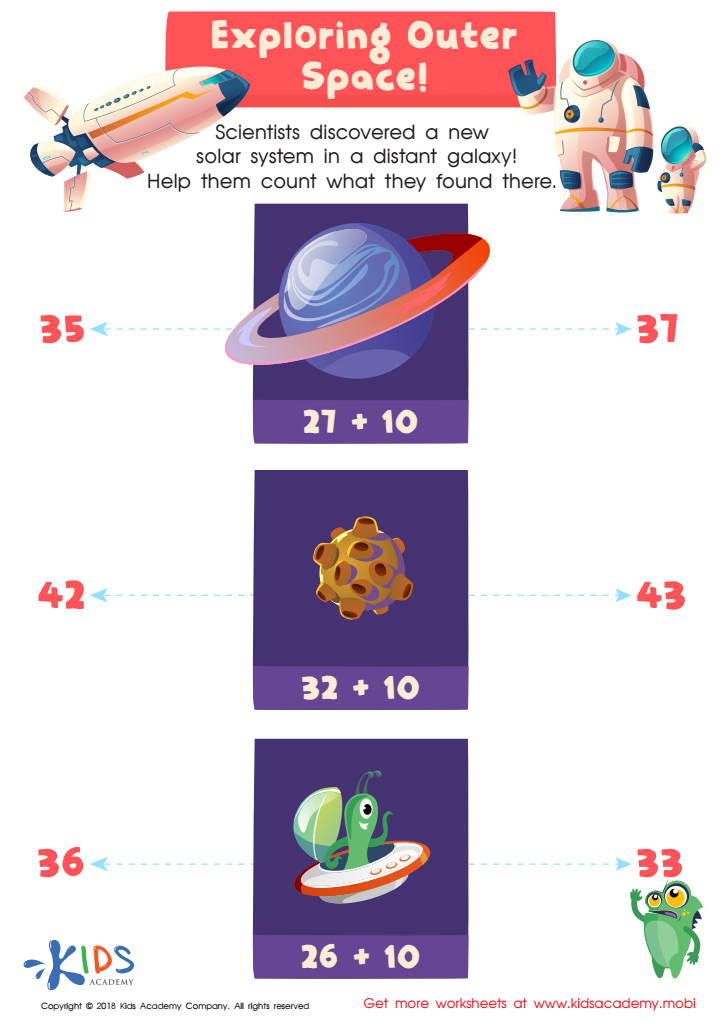

Exploring Outer Space Worksheet
Critical thinking skills are essential for young children aged 5-6 because they lay the foundational framework for lifelong learning and problem-solving. At this stage, children are incredibly curious and their brains are highly receptive to new information. Encouraging critical thinking helps them learn how to ask questions, analyze information, and come to informed conclusions. This skill set enhances their ability to understand the world around them and improves their academic readiness.
For parents, focusing on critical thinking ensures that their children develop resilience and the capacity to navigate uncertain situations with creativity and confidence. These skills also promote better decision-making, allowing kids to evaluate the consequences of their actions and choose wisely, both socially and academically.
For teachers, fostering a classroom environment that encourages critical thinking is invaluable. It not only makes lessons more engaging but also helps students develop deeper comprehension and retain knowledge more effectively. Moreover, children who learn to think critically are better collaborators and communicators, which benefits the entire class dynamic.
Ultimately, investing in critical thinking education for young children empowers them to become independent thinkers. It gives them the tools they need to succeed in future academic endeavors and to lead enriched, thoughtful lives.
 Assign to My Students
Assign to My Students









